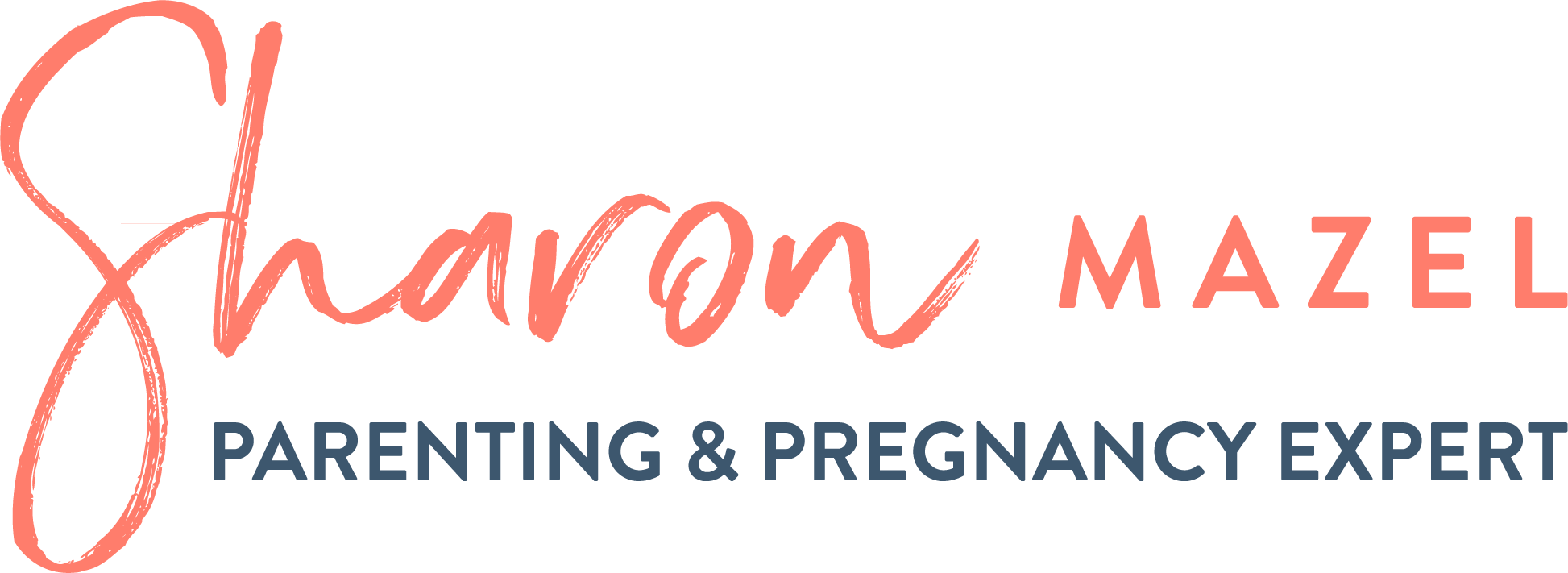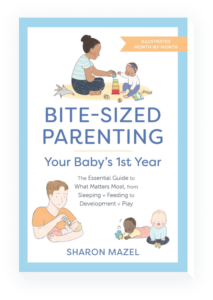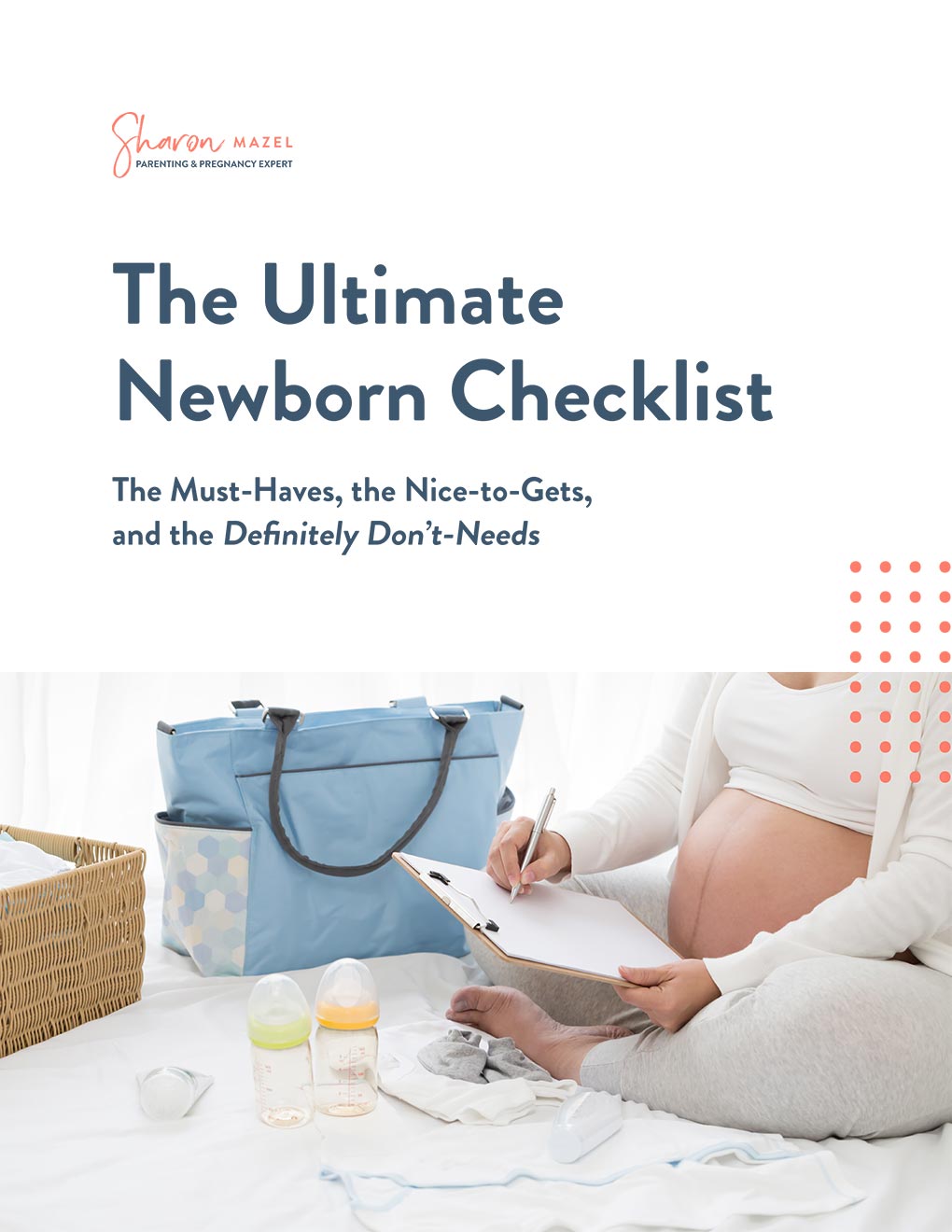Wondering how much solid food (and how many meals) your baby will be eating each day when starting solids? Truth is, there’s no black-and-white answer to this common question. That’s because your baby should be eating as much solid baby food as your baby will eat. In other words, there really is no precise portion size or amount of food per day that each baby will eat.
But even though you’ve now learned that, you probably still want some guidance when starting solids. So here’s a rough guide… keeping in mind that your baby may eat much more or much less than these averages and that’s perfectly acceptable.
No baby will eat the exact same amount as another baby. So instead of focusing on how much your baby is eating, place your energy into what types of foods your baby is eating (you’ll want the most nutritional bang with the foods you’re offering). And watch your cutie’s cues instead of the teaspoons — because babies are incredibly good at self-regulating their appetites and communicating to you when they are hungry or full.
How many meals per day when starting solids?
Though it’s recommended that you start solids closer to 6 months of age, some parents will get the green light for solid foods as early as 4 months. If you’re starting at 4 months old, you’ll probably be feeding only around once a day. If you’re starting at 6 months of age, you’ll likely start with 1 or 2 meals per day (breastmilk or formula will still be your baby’s main source of nutrition at this age), moving up to 2 to 3 meals per day somewhere around 9 months old, and rounding out the first year with 3 meals a day and perhaps an afternoon snack.
When you first start solids, late afternoon or early evening can be a good time for a meal, especially for breastfeeding moms who might notice a dip in milk supply toward the evening. Other parents choose instead to offer up solids at the morning meal when first starting out. Your baby, your choice.
In the beginning, it’s smart to offer breastmilk or formula first and then solids. By 8 to 9 months, serving up solids first (along with a cup filled with some breastmilk or formula at the meal) and topping off the meal with a liquid dessert around an hour later makes sense, as solids will be taking on more of a starring role in your baby’s nutritional repertoire.
How much food per meal?
Don’t worry about amounts. True, that sounds crazy, but because there’s such a wide range of appetites among babies (just like there are wide ranges of shapes and sizes among babies), it’s very hard to determine the “right” portion size.
Consider this: What you feed your baby is very different than what your friend feeds her baby, and protein foods (like meat or fish) are more nutritionally dense than fruit or vegetables, making it hard to give a blanket portion amount for “how much food per meal”. What’s more, different babies have different activity levels and different metabolic rates, making it difficult to standardize guidelines for all babies. Finally, your baby’s nutritional needs will vary from time to time — growth spurts may increase his nutritional needs, while teething or illness might decrease his appetite — which means there will be a wide range of variation in food amounts from day to day, week to week, and baby to baby.
So instead of looking for precise measurements, watch your baby instead. If she is happy, alert, and playful during the day, gaining weight steadily, and learning new skills, you’ll know she’s getting enough food. And instead of worrying about whether she ate enough at Tuesday’s breakfast or Thursday’s lunch, consider her entire week of intake instead.
Looking for more information about starting solids? My book Bite-Sized Parenting: Your Baby’s First Year covers it all and includes these topics and more:
- Signs your baby is ready to start solids
- Starting solids using puress
- Starting solids using baby-led weaning
- First foods to feed your baby
- What to do if your baby gags
- Serving allergenic foods
- Foods and drinks to avoid in the first year
- Serving water to your baby
- Teaching your baby how to chew food
- Eating with your baby
- Messy eating
- What to do when your baby doesn’t want to eat food


